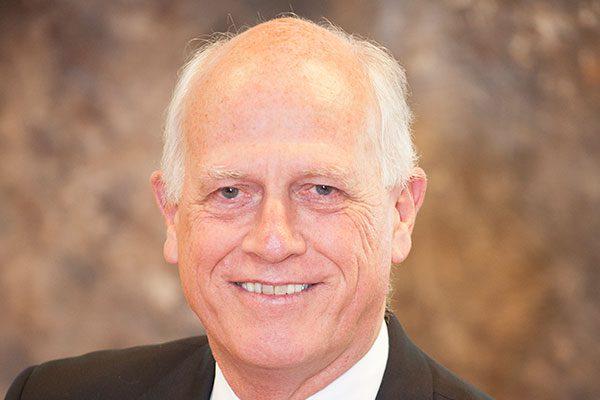
Professor Russell Trood, who died this week aged 68, was an absolute gentleman in every way. Invariably gracious, he really cared about those he interacted with. His warm personal style, gentleness and concern for others meant he was genuinely liked by his colleagues and the broader community. People quickly recognised that Russell was learned with a sharp forensic mind and a deep passion for international affairs.
He was an outstanding Australian foreign policy and national security thinker and, as a teacher at both ANU and Griffith University, he shaped and influenced thousands of students from Australia and overseas. Very often someone he’d taught would delightedly recall a memory of their time as his student.
He was one of the few true ‘scholar-diplomats’ in the academic community. He spearheaded Griffith University’s interactive efforts with research institutes throughout the region. He directed the Centre for the Study of Australian Asian Relations from 1991–2003 and his skillful leadership of CSAAR saw him connect academic work with the key policy interests of Australian agencies, particularly DFAT. In 2015 he was appointed director of the Griffith Asia Institute.
His work was further recognised when he was appointed to Alexander Downer’s Foreign Affairs Council to provide input on important foreign policy issues.
Without an ounce of conceit, Russell was always guided by a strong ethos to combine independent intellectual enquiry with dedicated public service.
That acted as a magnet for his students, who recognised that that his research agenda was fueled by drive to make the world a better place. That attitude was reflected in his later work on traditional and non-traditional foreign policy and national security issues.
He had a vibrant sense of humour and people really wanted to be around him. Hence his appointment as an adjunct professor at the University of Sydney, an adjunct fellow at ANU’s Department of International Relations, a visiting fellow at the Lowy Institute for International Policy and an adjunct professor at the US Studies Centre at the University of Sydney.
He served on the boards of the National Library, the Australia-Indonesia Institute and the Australian-American Fulbright Commission. He was an active member of the Council for Security Cooperation in the Asia–Pacific, a driving force in the Queensland branch of the Australian Institute of International Affairs, and a dynamic president of the United Nations Association of Australia.
Russell was a member of the ASPI Council from September 2009 to December 2012. He was passionately interested in ASPI’s research agenda and contributed personally to it. Writing in ASPI’s incoming government brief, Agenda for Change, published to coincide with the 2013 federal election, Russell argued that ‘good foreign policy demands contestability of ideas and sound policy options.’ He wanted to see a significant strengthening of DFAT’s capability to advise government about Australia’s many foreign policy challenges and he was scathing about cuts to DFAT’s numbers and policy development capabilities. As a member of the ASPI Council, Russell was welcoming to all, especially those who brought fresh ideas to the table.
His personal and professional skills meant Russell was given tasks at the national level where high levels of trust were demanded, such as his appointment as the Prime Minister’s Special Envoy for Eastern Europe.
Russell was Liberal Senator for Queensland from 2004–2010 and deputy chair of the Senate Committee on Foreign Affairs, Defence and Trade. He was far more interested in policy than politics, and never sought the limelight, but he was passionate about improving Australia’s security and foreign policy. That’s clear from his first and last Senate speeches.
When working with Russell on an ASPI paper, it was clear that he respected the parliamentary committee processes, was passionate about DFAT (funding) and public diplomacy, and he really believed in strengthening the federation. One of his last acts as a Senator was to chair the Select Committee on the Reform of the Australian Federation.
Prime Minister Turnbull described Russell this week as ‘one of Australia’s finest foreign policy minds’ and as an ‘unfailingly decent’ person. George Brandis observed that we’re all better for knowing him.
Russell was a true scholar and a gentleman. I will miss my friend, such a fine man. Vale Russell.